CHELTENHAM is where Luke McMahon had always dreamed of owning a winner but it isn’t top of the pops. The highlight came in Galway.
It was where much of his love of racing was cultivated, as his late father took him on annual ‘boys only’ summer tours of the tracks of the country from the time he was about 10, Paddy passing on his enthusiasm for the game.
Later on, when he became a licensed bookmaker and professional gambler, Luke returned the favour by taking his father to Cheltenham, York and Haydock. In time, he did the same with his own son.
So on that sunny final day of July, when the 19-year-old Aubrey made light of the renowned navigational challenges that come with a big field around Ballybrit, to steer Whiskey Sour to victory in the Connacht Hotel QR Handicap (or the GPT, as many still know it from its former long-standing guise), it was mind-blowing.
“Ted Walsh said to me after the race that the only thing would beat it was Aubrey riding a winner at Cheltenham and that’s probably right,” McMahon reflects.
“In fairness to Aubrey, he hadn’t much experience going out but he’d a lot of confidence in the horse and he kept saying to me ‘I’m riding the fastest horse in the race’ and I thought he gave him a peach to be honest. I was terribly proud of horse and jockey.
“It was just the most magnificent family occasion. It was like having a son win an All-Ireland medal or winning at the Olympics. It was a huge moment for us.”

Luke and Aubrey McMahon after he won at Galway on Whiskey Sour
CHARACTER
The victory didn’t just illustrate McMahon Jnr’s tactical nous and composure, but also the strength of his character. As illustrated again during the past week, social media sites can be cesspits and Aubrey was another victim.
He always dreamt of being a jockey and had ridden out at Ted Walsh’s from a young age. He registered his first winner on just his second ride at 16, donning his father’s silks on Rio Treasure in a Listowel bumper in September 2014. The pair combined successfully once more two months later in Cork.
But the Twitter trolls got the better of the youngster and he gave up at just 17, afraid to even pick up his phone due to the vile nature of the messages he had been getting.
“He got a job as a junior trader in Sandyford, and enjoyed it, but it wasn’t race-riding. So he came back, determined to make a career out of his first love. It added to the emotion of Galway for sure.”
“It mightn’t have been a bad thing,” says Luke now, reflecting on what was a difficult time. “He grew up a lot. He had a very good job and used to come down the M50 every Friday evening taking two hours and missing riding out. He was still trying to ride out at six and seven in the morning and do his job and he just decided he wanted to go back at it. He has a few spins coming up now and he’s working hard but it’s hard to get outside rides.”
Whiskey Sour is the family pet now but he is a proper racehorse into the bargain. Four days later, Willie Mullins turned the Jeremy gelding out again to double his winnings for the week to €118,000 by bagging the Guinness Handicap, this time with Declan McDonogh on board.
He was put away then until being pitched in at the deep end in the Grade 1 Future Champions Novice Hurdle at Leopardstown, 145 days after completing that brilliant Galway double. Stablemates Sharjah and Real Steel looked like battling it out between them coming to the last, after Mengli Khan had run out two from home, but both fell independently. That left Whiskey Sour a 19-length winner.
“I felt sorry for him in Leopardstown the way people were saying he was a joke of a winner but Willie had nowhere to run him because he had no rating, so we couldn’t go for a rated hurdle… But the last I looked it was jump racing and not flat racing.
“A horse ran through the wing, those things happen, it doesn’t happen often. Two fell at the last. I think two fell at the last in Thurles in a handicap chase a few weeks later and nobody seemed to say anything about it. They’re there to be jumped.
“But the one thing he was going to do at Leopardstown, regardless of whether the two horses were falling or not, he was going to run an absolute cracker on his first run back. And he finished a long way in front of horses like Hardline, who won two good races after.”
Whiskey Sour finished third in the County Hurdle, having looked the winner when taking the lead approaching the last.
“He’s tiny and I’d say that type of winter ground just finds him out. But I couldn’t have been more proud of him. He ran his heart out. I’d say if the ground had been a little better or they’d have gone off a little quicker, he’d have stayed going. But there were no complaints. David (Mullins) gave him a fantastic ride.
“He came in thinking he’d got to the front too soon but he was being hard on himself. He rode a great race and Whiskey ran a phenomenal race. He has come some distance from winning a maiden hurdle in June in Tramore.”

Cheltenham winner Bleu Berry
So Bleu Berry isn’t number one but he is prominent in the McMahon pantheon, after responding generously to Mark Walsh’s vigorous earnings to claim a neck triumph in the Coral Cup.
McMahon had enjoyed festival success before on a couple of occasions in partnership with friends. It is the most incredible rush to prevail in what the sport’s Valhalla and Paddy was very prominent in his thoughts.
“My Dad is nine years dead now. He brought me to Cheltenham when I was a kid. You used to look down in the parade ring and think you’d love to be there. As you get older and things fall your way, I’ve been very lucky to be there. There’s a lump in the back of your throat, there’s no doubt about it.
“He came into my mind when I saw so much traffic in front of us, I said ‘Jesus Da, give us a bit of help here!”
McMahon took a moment away from the celebrations to express sympathy with Paul Townend, who had been slated to ride the seven-year-old until Ruby Walsh’s misfortune prompted a reshuffle. He acknowledges the exceptional jockeyship displayed by the other Walsh however.
“When he went to third last, I said to Aubrey ‘He’s going fair well but where is he going to go?’ He probably had 20 different options and if he took 17 of them, he’d probably have been wiped out. It’s a split-second decision. But he’s a tremendous rider. Maybe in England, he goes under the radar a bit if they don’t watch Irish racing but he’s up there with the best of them, there’s no doubt about it.
“It was terrible bad luck on Paul but as he said to me afterwards, ‘It could be worse, I could be lying beside Ruby in hospital.’ He was delighted for me and that’s the calibre of people that are in National Hunt racing.”
He has his own notions which he might throw out there but leaves all decision-making on where his charges will appear to Mullins.
“I always think the hardest thing about training horses is owners wanting to get too much involved. I can see why they’d want to get involved.
“I suppose it’s a bit like supporting Liverpool and wondering what team (manager Jürgen) Klopp is going to play. Everyone surmises but at the end of the day, he’s the boss. I’d have hated to have the decision of where to run Bleu Berry or Whiskey (at Cheltenham). I probably would have run them in the wrong race.”
MAESTRO
McMahon’s links with the Closutton maestro go back to Betterbebob, a Bob Back filly the trainer rode to a debut bumper victory at Gowran Park, edging out future 15-time winner and Champion Hurdle third Space Trucker by a head. McMahon’s good friend James Nash was the beaten pilot.
Cilaos Emery was McMahon’s first Grade 1 winner at Punchestown last April, beating Melon by more than Buveur D’Air managed in the recent Champion Hurdle.
Unfortunately, he was found to have fractured a cannon bone after his seasonal debut in the Ryanair Hurdle at Leopardstown, when finishing a close second to Mick Jazz.
“The prognosis is good and he’ll be back. I’d say we’ll go novice chasing with him next season. He can get a bit hot and needs to settle but he’s a hugely exciting horse for me.”

Niall Cronin, Shane Doran and Pat Keane presenting the trophies for The Herald Champion Novice Hurdle won by Cilaos Emery to David Mullins, Aubrey and Luke McMahon and Willie Mullins
Seven-year-old Uradel has run twice in 27 months but both of those were victories.
“He’s just been really patient with him. Aubrey had been riding him and thought he would run really well (at Naas in February, where he won by seven lengths). It turned into a bit of a sprint and he probably has a bit of toe. You hope he’ll stay sound. He mightn’t be a graded horse but he might fall just beneath it. He might be a horse for Aubrey to go back to the GPT, you’d never know.
“We’re very lucky at the moment. The small bunch of horses I have are paying their way.”
PRIZE MONEY
Something that is much likelier here than if they were based across the pond.
“It baffles me how people even have horses in training in England. The prize money is atrocious, the training fees are very high and the travelling expenses are colossal.
“The prize money in Ireland is fantastic. If you had one little gripe it was the way owners were being treated in the past but a lot of places are stepping up to the mark. The recent facility they opened in Naas is fantastic and they look after you really well in Fairyhouse and Leopardstown.
“Some of them, still, are outrageous. I go to the races most days but if you are an owner and are bringing your wife, you’re surely entitled to sit down in some nice little place and have a basic meal, even if it’s a chicken curry and a glass of water… A bit of appreciation that the horse is running would be nice but on the whole, it’s better.”
He will take the prize money over the hospitality any day though.
“Augustin wasn’t good enough to go to Cheltenham but he ran in a race the other day where there was €38,000 to the winner and there were 10 runners. When Bleu Berry won the Coral Cup, it was £45,000 sterling to the winner. I was over the moon to bring back the trophy and £45,000 but there’s 70,000 people there paying between 80 quid and probably a thousand.
“I think there should be no race at Cheltenham where the winner gets less than £100,000. It must be making a fortune. Most people aren’t there for the prize money and they cash in on that.”
He bets exclusively on Irish racing and works hard at making it pay.
“There’s no rule book or there’s no science to it. I prefer jump racing and I prefer winter jump racing. You could fancy a horse very strongly in a jumps handicap, be five lengths wrong and still collect your money, whereas you could be two lengths wrong in a flat handicap and not be in the first four.
“There are certain times of the year, like the start of the flat, it’s definitely a watching brief, especially when the ground is bad. Some trainers are in better form than others.
“The one thing you’ve got to do in the gambling game, is if you lose, you can’t go out the gate screaming about the jockey or the trainer. The only person you can blame is yourself. You’re the one that took the cash out of your pocket. Some days you play it bad and some days you play it good.
“Because the way the game has gone, the one thing you can’t have anymore is a car crash because you can’t get it back. Years ago, if you were losing your dough, you could have a whack off a 5/1 chance. Nowadays if you went to have a whack off a 5/1 chance, you would end up backing a 3/1 chance. The odds are gonna beat you. Or maybe as I’m getting a bit older my bottle is gone a bit! But you can’t. Years ago, there were so many places you could bet, nowadays there are so few.”
He is saddened by the dodo status looming for on-course bookmakers. The retirement of David Power “tells a story”. McMahon gave up the ghost “seven or eight” years ago.
“I should have gone out 10 years ago. It was like a stone in water. I often went to Kilbeggan on a Friday night and held 50 grand. It finished up you wouldn’t hold 50 grand in a year.
“I go to the races nowadays, I would hardly walk into the betting ring. There’s no reason to. You still have Ray Mulvaney, who makes a good show, McGranes make an effort, but you walk in now and see so many bookies, no disrespect to them, they’re just looking for a day’s wages.
BETTING RING
“It’s very sad because the hub of racing was the betting ring. It was the nearest thing to Wall Street years ago. I remember Sean Graham and Davy Meehan and all these guys were around. As a kid you’d be mesmerised watching lads 40 years ago having 10 grand on.
“Betfair were the first big exchange to come along and they wiped out the majority of the bookies and the fellas that were betting big, they took them all. But now they got rid of everybody, they ran everybody out so I’d do a bit with Betdaq, and with Matchbook, and I would have one or two friends in England that might get me on. But it is desperately hard to get on.”
He avoids bumpers but targets maiden hurdles and beginners’ chases. And he will always live or die by his own judgement, studying the form and assimilating all the information.
Largely, he thinks Irish racing is in a good place but was flabbergasted by the defence of HRI chief executive, Brian Kavanagh of the decision to move the rights for TV coverage from At The Races to Racing UK. Kavanagh said it was “the best commercial decision for Irish racing” but McMahon disagrees.
“People aren’t going racing day to day like they used to. That’s just the way the world has gone. I drink in a small little bar between Celbridge and Newcastle and they’re all keen into the racing but not one of them there has a Racing UK account and I don’t think any of them will pay €30 a month or €20 a month because they have enough outgoings. I think it’s desperate.
“Losing ATR is a horrendous loss for the industry and the popularity of the game and I just couldn’t see Brian Kavanagh’s point that it was a good move. I need someone to explain that to me, how it’s a good move when our product, which is a sport, isn’t getting out there.”
A by-product of television scheduling is the 35-minute gap between races, making an eight-race card “torturous” he maintains, echoing a sentiment often expressed by trainer Jim Bolger.
This is particularly the case he argues on a flat card, when a seven-furlong handicap will be over in less than two minutes. More action with shorter intervals in between will make racing more attractive to patrons, McMahon argues.
But this is his work and it is his passion. He will be going anyway. After Cheltenham comes Fairyhouse, Aintree, Punchestown and more. He can’t wait.
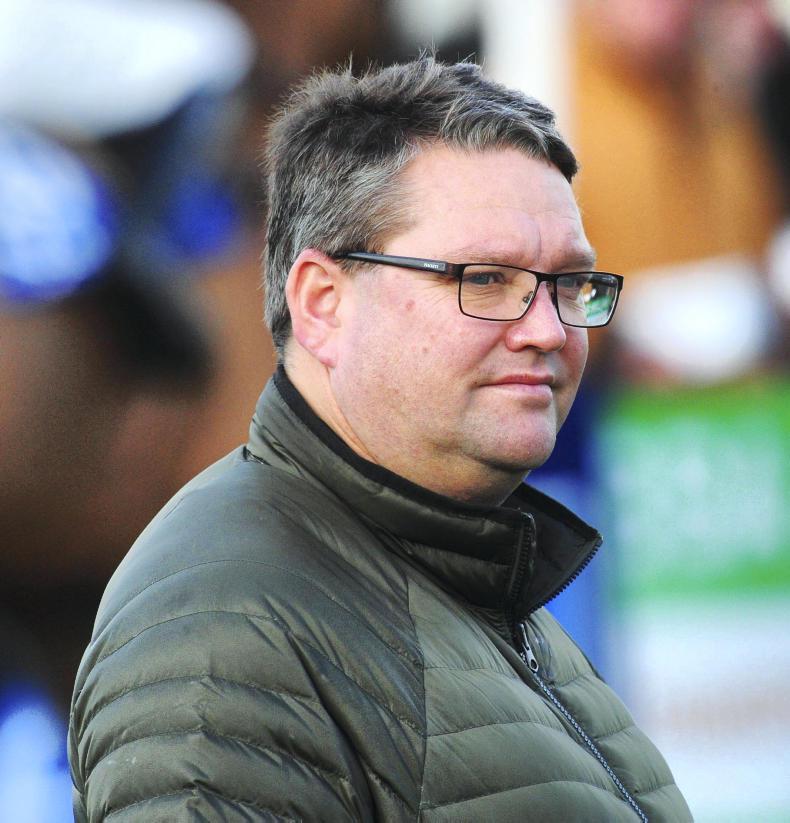



 This is a subscriber-only article
This is a subscriber-only article
 It looks like you're browsing in private mode
It looks like you're browsing in private mode




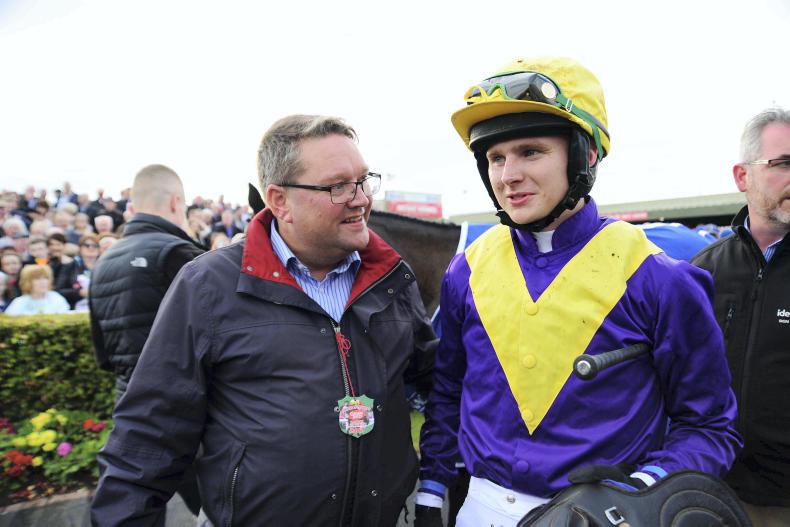
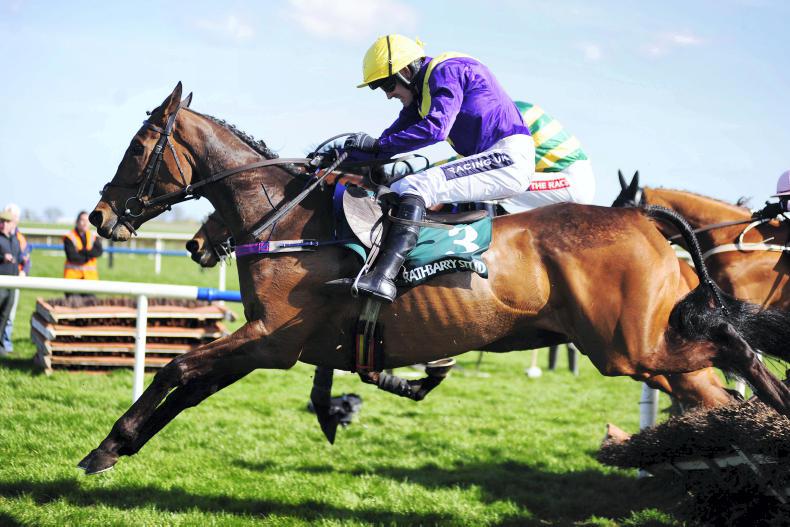
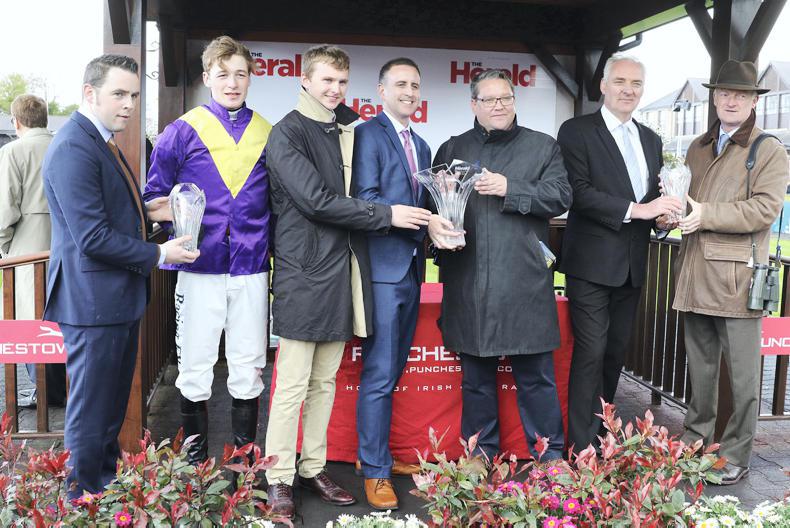
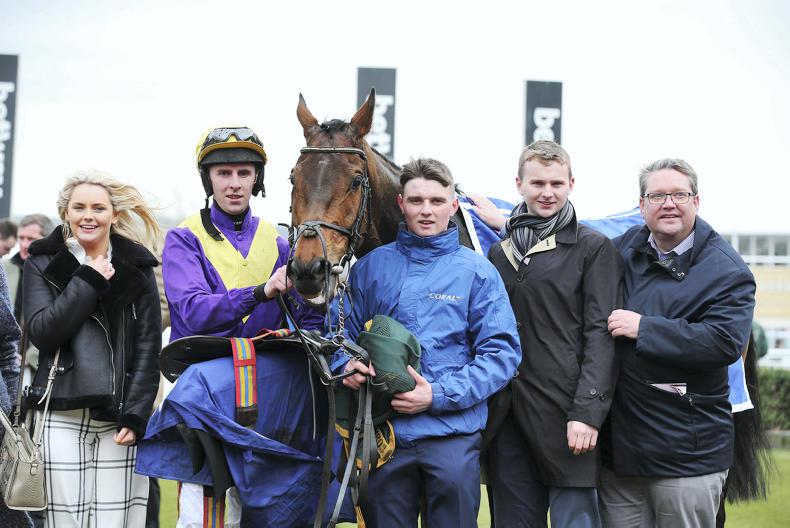

SHARING OPTIONS: